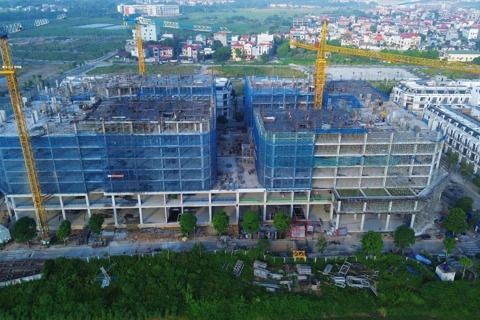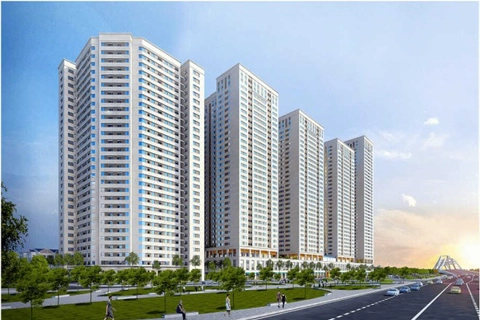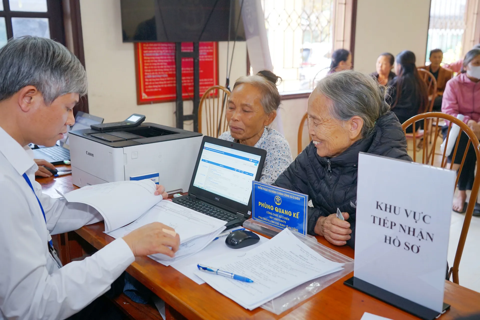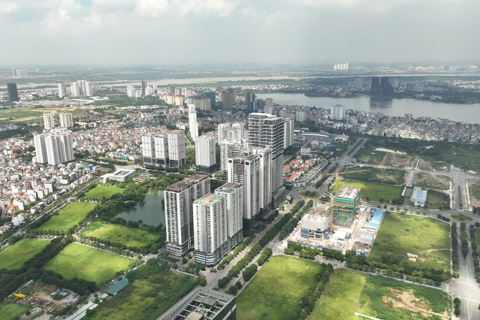Property
Property worth over US$31,000 subject to tax payment
Apr 14, 2018 / 08:52 AM
Instead of taxing a second home, the Ministry of Finance (MoF) decided to impose a tax rate of 0.4% for the amount exceeding the threshold of VND700 million (US$31,000) for each home.
The mentioned tax rate will be applied to all kinds of home, including apartments, land plots, commercial lands worth VND700 million (US$31,000) upwards, informed Pham Dinh Thi, Director of Tax Policy Department (MoF) at a press release on April 13.
For example, for a house worth VND1.7 billion (US$74,800), the owner will have to pay VND4 million (US$176) in property tax, or 0.4% tax rate for the amount of VND1 billion (US$44,000).
With regard to apartment, the tax payable amount will be calculated based on the area stipulated in land use certificate.
There will be two options for land plot. Firstly, the tax payable amount will be based on the land list price issued by the provincial People's Committee at the time of tax payment. The MoF considered this option to be simple and feasible. However, the tax rate on each square meter may not fully reflect the market price.
Secondly, tax rate on each square meter will be based on the market price at the time of tax payment. This option, according to the MoF, is not suitable due to the unavailability of an appropriate asset valuation system. Consequently, the MoF is in favor of the first option.
On the tax rate, the MoF at first considered two option of 0.3% and 0.4% for the amount exceeding the threshold of VND700 million (US$31,000). Under this calculation, for the tax rate of 0.3%, it is expected to raise at least VND23.3 trillion (US$1.02 billion), while a tax rate of 0.4% will have a return of VND31 trillion (US$1.36 billion).
However, the MoF chose the option of 0.4% "to be suitable with tax property in other countries, ensure steady stream of revenue and the objective of restructuring state budget revenue."
Regardless of options, the MoF proposed a tax rate of 1% for improper land use to prevent illegal land accumulation. However, the MoF admitted the shortcoming of this option to have impact on citizens, especially the owner who have property worth large sums of money, but lacking the means to pay tax.
Substantially, the MoF suggested tax payer can delay the payment until the sale of property.
Reasons behind the intention of not taxing the second home, according to the MoF, is to ensure fairness. Specifically, a owner who have large house will not be subject to tax payment, while a owner of 2 homes at 50 square meters each has to pay tax.
Taxing a second home is currently being applied in some countries such as Singapore, Japan, England, and France, where the real estate market is transparent and efficient land management, while in Vietnam it is still in the development phase.

Illustration photo.
|
With regard to apartment, the tax payable amount will be calculated based on the area stipulated in land use certificate.
There will be two options for land plot. Firstly, the tax payable amount will be based on the land list price issued by the provincial People's Committee at the time of tax payment. The MoF considered this option to be simple and feasible. However, the tax rate on each square meter may not fully reflect the market price.
Secondly, tax rate on each square meter will be based on the market price at the time of tax payment. This option, according to the MoF, is not suitable due to the unavailability of an appropriate asset valuation system. Consequently, the MoF is in favor of the first option.
On the tax rate, the MoF at first considered two option of 0.3% and 0.4% for the amount exceeding the threshold of VND700 million (US$31,000). Under this calculation, for the tax rate of 0.3%, it is expected to raise at least VND23.3 trillion (US$1.02 billion), while a tax rate of 0.4% will have a return of VND31 trillion (US$1.36 billion).
However, the MoF chose the option of 0.4% "to be suitable with tax property in other countries, ensure steady stream of revenue and the objective of restructuring state budget revenue."
Regardless of options, the MoF proposed a tax rate of 1% for improper land use to prevent illegal land accumulation. However, the MoF admitted the shortcoming of this option to have impact on citizens, especially the owner who have property worth large sums of money, but lacking the means to pay tax.
Substantially, the MoF suggested tax payer can delay the payment until the sale of property.
Reasons behind the intention of not taxing the second home, according to the MoF, is to ensure fairness. Specifically, a owner who have large house will not be subject to tax payment, while a owner of 2 homes at 50 square meters each has to pay tax.
Taxing a second home is currently being applied in some countries such as Singapore, Japan, England, and France, where the real estate market is transparent and efficient land management, while in Vietnam it is still in the development phase.








